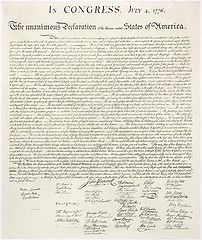 In this week’s Acton Commentary, “Corrupted Capitalism and the Housing Crisis,” I contend we need to add some categories to our thinking about political economy. In this case, the idea of “corporatism” helps understand a good deal of what we see in the American system today. Adding corporatism to our quiver helps us to make some more nuanced distinctions than simple “socialism” and “capitalism” allow.
In this week’s Acton Commentary, “Corrupted Capitalism and the Housing Crisis,” I contend we need to add some categories to our thinking about political economy. In this case, the idea of “corporatism” helps understand a good deal of what we see in the American system today. Adding corporatism to our quiver helps us to make some more nuanced distinctions than simple “socialism” and “capitalism” allow.
Take, for instance, Mitt Romney’s contention this week while campaigning in Michigan that the bailouts of the auto companies was a feature of “crony capitalism.” A better way to understand the relationship between big business and big government today might instead be characterized as “crony corporatism.” You have a select group at the highest levels of an industry influencing government policy, which in turn favors those big businesses, provides various moral and fiscal incentives to consumers to patronize these industries, and then when necessary bails them out.
In this week’s commentary I use corporatism as a way of unpacking what happened in the recent housing crisis. For too long the American dream has revolved around home ownership. Owning a home is a good thing for many people; for many others it isn’t. What we have failed to recognize is the moral hazard that attends to government promotion of a particular vision of the American dream and the crises that result. As Dambisa Moyo characterized the housing crisis,
The direct consequence of the subsidized homeownership culture was the emergence of a society of leverage, one where citizen and country were mortgaged up to the hilt; promoting a way of life where people grew comfortable with the idea of living beyond one’s means.
The definition of the American dream offered by politicians should be far less precise, and presumably not include the level of specificity that says we should all own a home, drive a GM car, and have a college degree. As Nobel laureate Edmund Phelps put it in a 2009 interview,
I’m hoping that the administration and other thought leaders will succeed eventually in bringing the country back to the older idea that the American dream is having a career, getting a job, and getting involved in it, and doing well. That was the core of the good life. That’s what we have to get back to, and get away from this mystique that the most important thing in your life that could ever happen to you is to be a home owner.
The cultivation of an “ownership society” through government subsidy is only one feature of the creeping corporatism of contemporary America. As has been documented just in the last few days, the role of the government in directing and providing social goods has increased dramatically over recent decades. Following a New York Times story describing the increasing dependence of the American middle class on governmental initiatives of one form or another, Steve Hayward summarizes, “increasingly we’re taxing the middle class to pay themselves their own money, minus a large commission to Washington DC” (HT: The Transom). The government is increasingly using these subsidies and incentives to shape how people live their lives.
As I conclude in today’s piece, “The American people do not need politicians to tell them what happiness is and how it should be pursued. These are functions that our families, churches, and friendships fulfill.” One place to look instead would be the Westminster Shorter Catechism: “Man’s chief end is to enjoy God and glorify him forever.” Another would be the words of Jesus: “Life does not consist in an abundance of possessions” (Luke 12:15).

